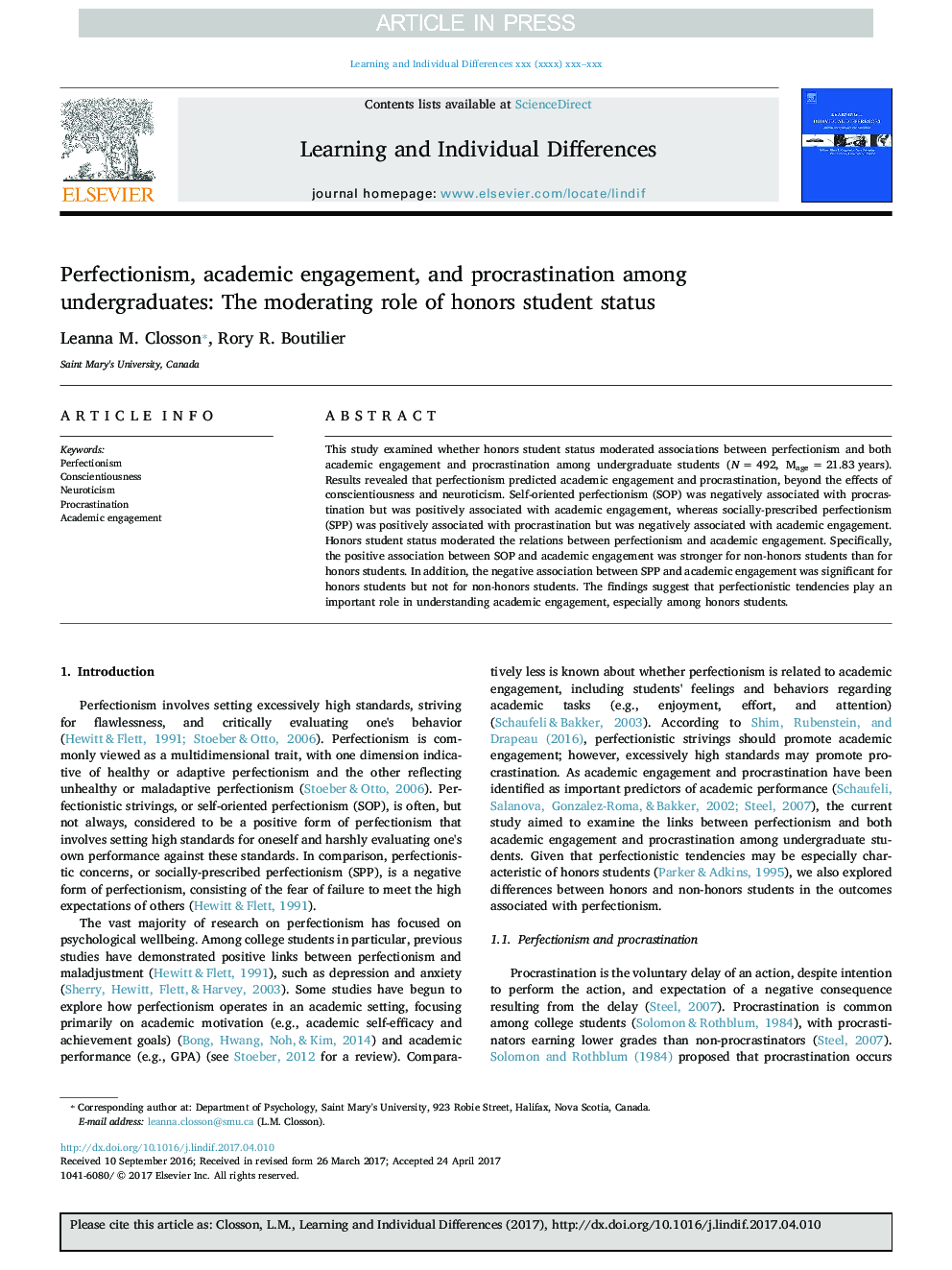| Article ID | Journal | Published Year | Pages | File Type |
|---|---|---|---|---|
| 4940011 | Learning and Individual Differences | 2017 | 6 Pages |
Abstract
This study examined whether honors student status moderated associations between perfectionism and both academic engagement and procrastination among undergraduate students (N = 492, Mage = 21.83 years). Results revealed that perfectionism predicted academic engagement and procrastination, beyond the effects of conscientiousness and neuroticism. Self-oriented perfectionism (SOP) was negatively associated with procrastination but was positively associated with academic engagement, whereas socially-prescribed perfectionism (SPP) was positively associated with procrastination but was negatively associated with academic engagement. Honors student status moderated the relations between perfectionism and academic engagement. Specifically, the positive association between SOP and academic engagement was stronger for non-honors students than for honors students. In addition, the negative association between SPP and academic engagement was significant for honors students but not for non-honors students. The findings suggest that perfectionistic tendencies play an important role in understanding academic engagement, especially among honors students.
Related Topics
Social Sciences and Humanities
Psychology
Developmental and Educational Psychology
Authors
Leanna M. Closson, Rory R. Boutilier,
